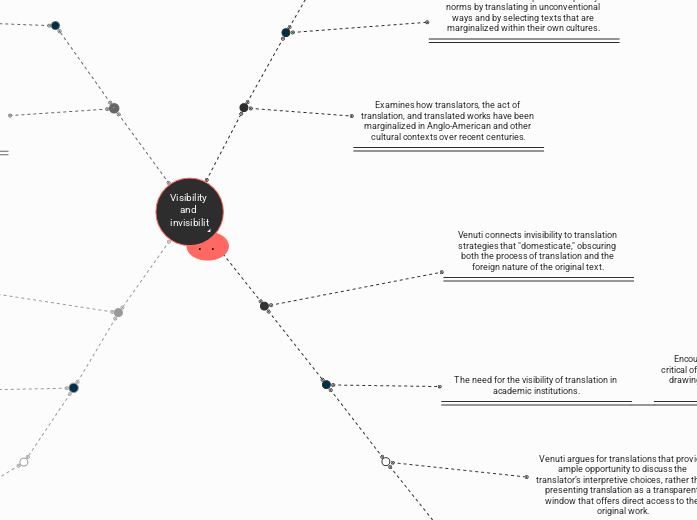Visibility and invisibility ^
André Lefevere proposes translation as one among many forms of "rewriting"
Includes: Editing, anthologization, literary criticism, and the writing of literary histories, biographies and book reviews.
"Manipulation" of the originals.
A translator can disrupt contemporary norms by translating in unconventional ways and by selecting texts that are marginalized within their own cultures.
Examines how translators, the act of translation, and translated works have been marginalized in Anglo-American and other cultural contexts over recent centuries.
Añada su texto
Venuti argues for translations that provide ample opportunity to discuss the translator’s interpretive choices, rather than presenting translation as a transparent window that offers direct access to the original work.
The need for the visibility of translation in academic institutions.
Encouraging students "to be both self critical of exclusionary cultural ideologies by drawing attentiob to the situatedness of texts and interpretations.
Venuti connects invisibility to translation strategies that "domesticate," obscuring both the process of translation and the foreign nature of the original text.
^
The book concludes with a "Call to Action," urging translators themselves to take the lead in challenging and revising the cultural, economic, and legal norms that marginalize and exploit them.
Venuti's book argues that translators are often overlooked as co-producers of texts due to marketing, reading, and evaluation practices, as well as ambiguous legal status.
The need to make translations visible in the academy not just from a pedagogical point of view, but also in terms of institutional recognition.
Foreignization in translation is a strategy where the translator intentionally preserves aspects of the source text's foreignness to highlight its authenticity and uniqueness, even if it introduces unfamiliar linguistic and cultural elements to the target audience.
Venuti discusses the lack of visibility of translation as a cultural practice and its products, pointing out the scarcity of English translations of foreign literature. He attributes this to a global literary "trade imbalance" where Anglo-American markets dominate, while other markets heavily translate from English.
